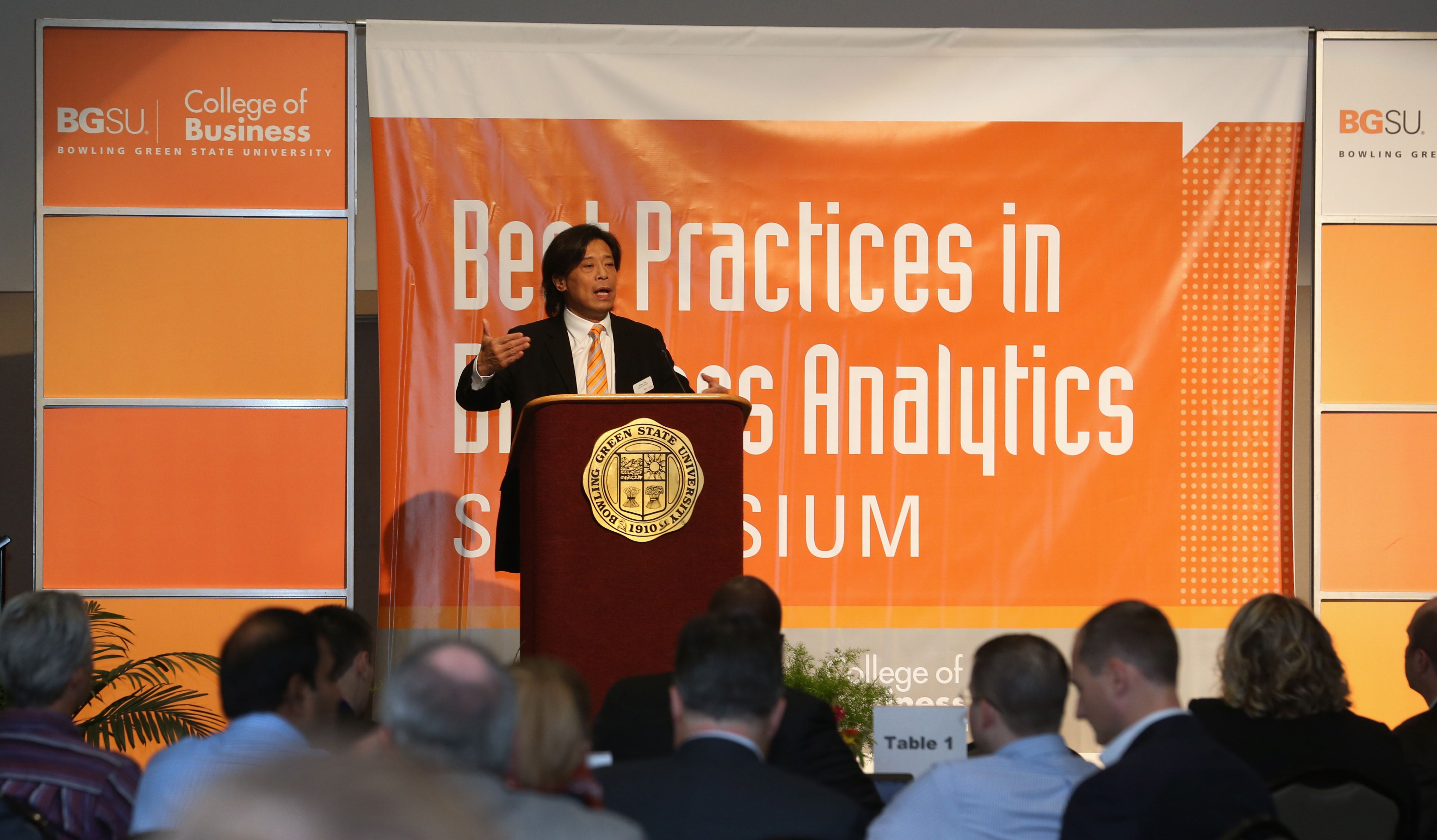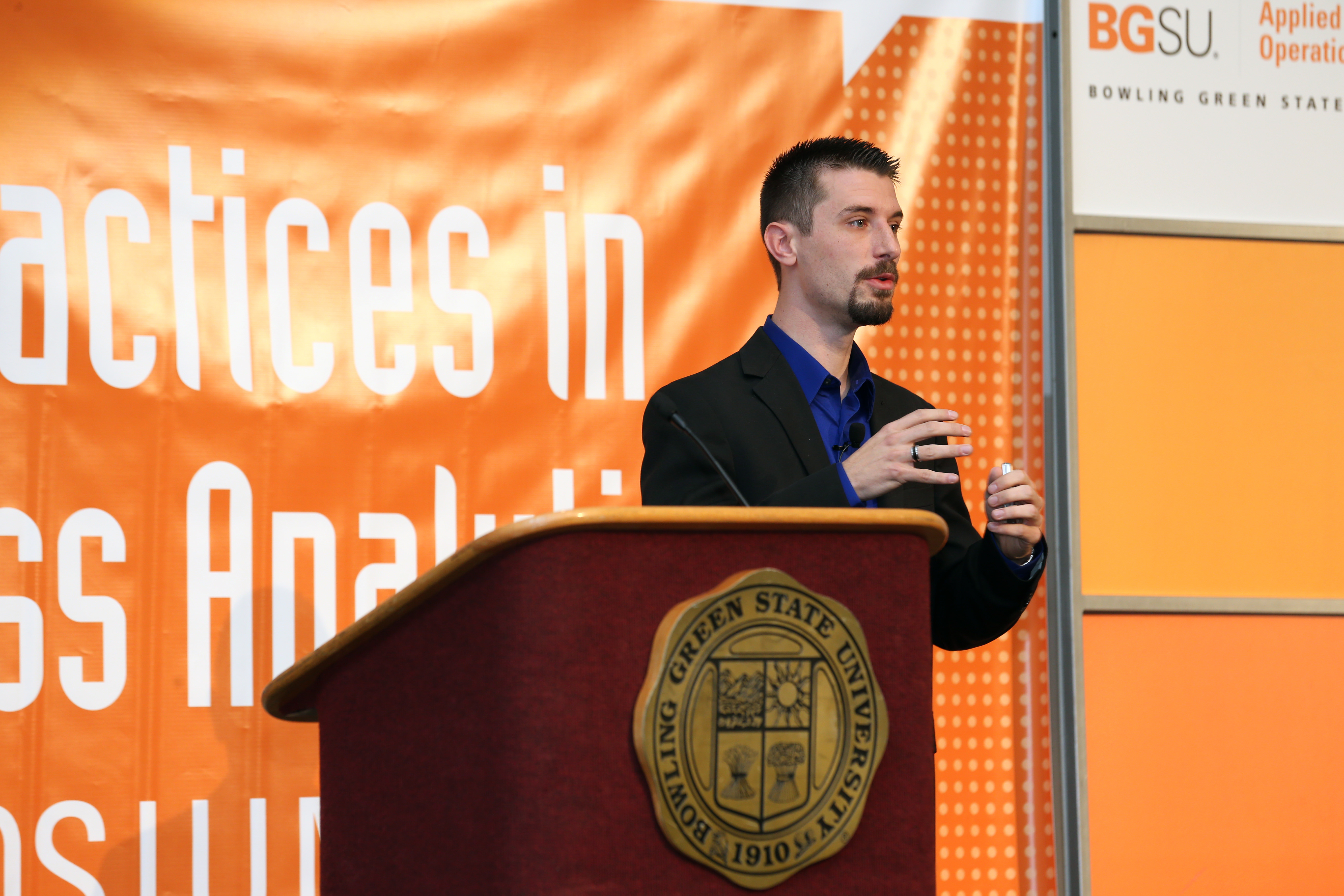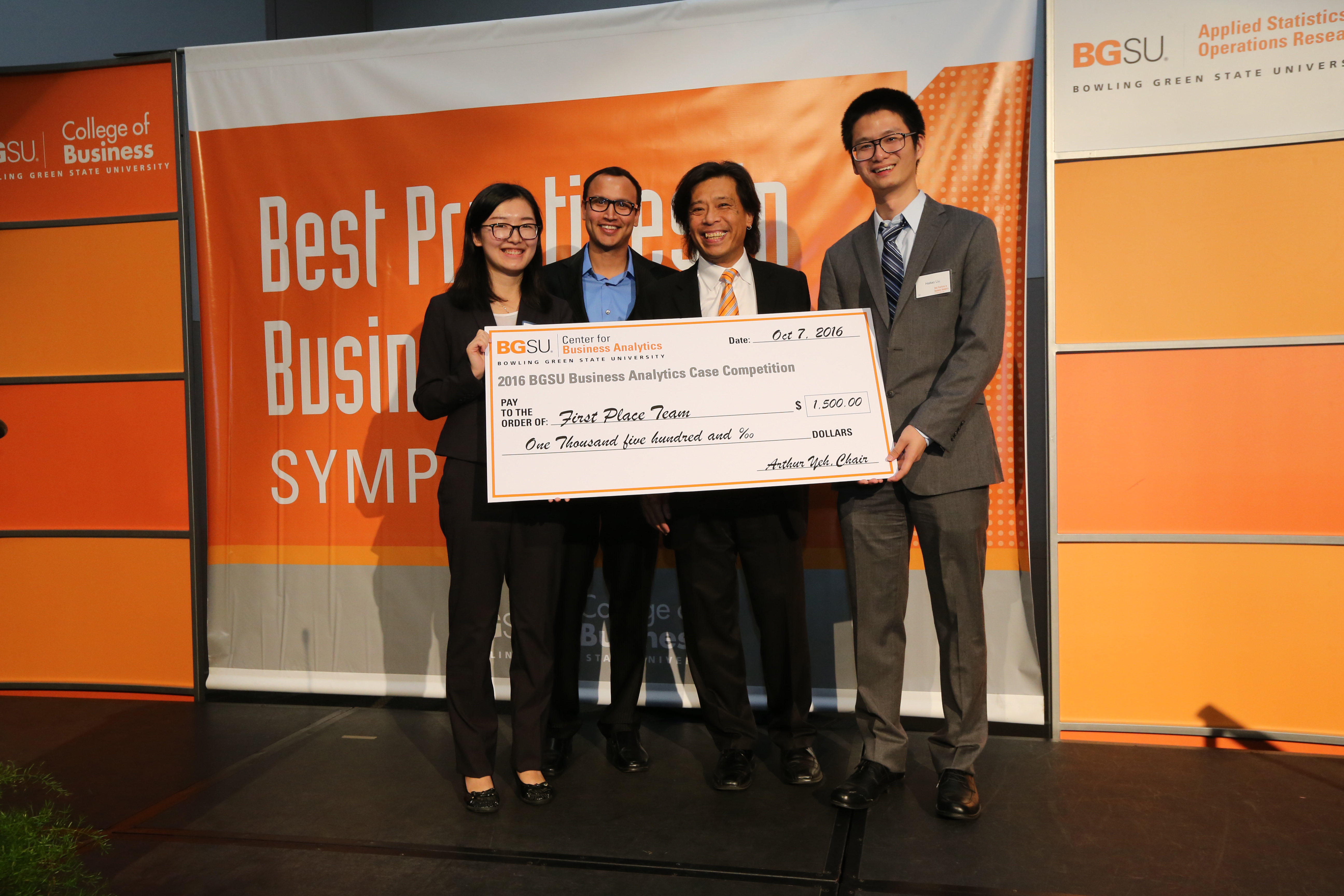Business Analytics Symposium explores supply chain analytics
 Business Analytics Symposium explores supply chain analytics
Business Analytics Symposium explores supply chain analytics
by Kandace York
Almost everything you use, buy or touch is the result of a supply chain. This year, the College of Business tackles supply chain analytics at its October 27 Business Analytics Symposium. It’s a topic that Dr. Jane Chang said she looks forward to sharing with the business community.
“This is such a huge issue, with so much potential to change the way companies do business,” she explained. “There couldn’t be a better time to learn how to turn knowledge of these tools into competitive advantages.” Dr. Chang, associate professor of applied statistics and operations research, is coordinating this year’s symposium through the college’s Center for Business Analytics.
Co-presenting the symposium is the college’s Supply Chain Management Institute, led by Dr. David Dobrzykowski, associate professor and director of the institute. Seats at the half-day event are expected to sell out, something that does not surprise him. “I’m not familiar with any other conference of this scale in the region.”
Supply chain, defined
When a supply chain works correctly it is “invisible,” but when it doesn’t work it’s very visible – like when you go to the store to buy bottled water but it’s sold out. Beyond inventory management, businesses have realized the strategic importance of supply chain management.
“Leading companies realize that they no longer compete against other companies; rather, their supply chains compete against their competitors’ supply chains,” Dr. Dobrzykowski said. “The more effectively they manage information, material and financial exchanges with their partners, the better they serve their customers and drive value for their shareholders.”
These activities produce a tremendous amount of data which, when used effectively, can lead to competitive advantages. It’s an issue he knows well. Before joining BGSU, he was an associate professor at Rutgers Business School’s Department of Supply Chain Management, along with working over a decade in health care management.

Cross-pollinating
Northwest Ohio is already a hub for supply chain activity, Dr. Dobrzykowski said, thanks to its extensive transportation links: a Great Lakes port, major north-south and east-west interstates, rail networks and an airport.
These advantages build on what he described as a “sea change” era for supply chain analytics. “This is just an amazing time that will separate leading companies from the middle of the pack.”
The symposium, he said, is for anyone interested in using analytics to improve organizational performance. “I don’t know of any other opportunity in the area where they can all come together, discuss supply chain best practices with C-level executives, and ‘cross-pollinate’ like this.”
Supply chain experts
Keynote speaker is Carlos Londono, vice president of Owens-Illinois’ global supply chain. Londono is responsible for optimizing O-I’s procurement, logistics and supply chain planning and execution for Europe, North America, Latin America and Asia Pacific.
“Owens-Illinois uses advanced analytics and business intelligence to analyze and glean insights from all of the data that flows through its supply chain,” Dr. Dobrzykowski said. “Carlos will share O-I’s journey, including the intensive use of information, data analytics and visibility tools that have allowed the company to identify important opportunities for growth and development.”
A panel of supply chain experts will also discuss new supply chain approaches, challenges and opportunities. They include Amanda Christian, vice president and corporate director of procurement at CACI in Arlington, Virginia, and Dan Hurry, chief supply chain officer for Mercy Health in Cincinnati.
Dr. Arthur Yeh, associate dean of the College of Business, will moderate the panel discussion.

Student case competition
The symposium wraps up with the O-I Business Analytics Competition. BGSU student teams evaluate a hypothetical O-I business issue and present their solutions to symposium attendees.
The winning team gets a check for $1,500, but the larger value is the experience of applying classroom learning to a real-life business problem. This helps prepare students for success in the competitive supply chain field, where job opportunities are as extensive as they are important, Dr. Dobrzykowski said.
“Supply chain positions range broadly to include logistics, quality, production and operations management, forecasting, inventory management and even sales operations,” he explained. “Today, a company’s performance is fueled by how well its people use the analytics approaches and tools we will discuss on October 27.”
Updated: 12/01/2017 10:59PM
